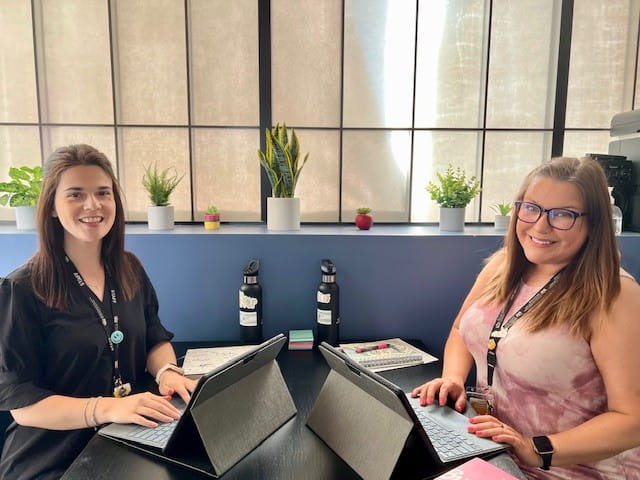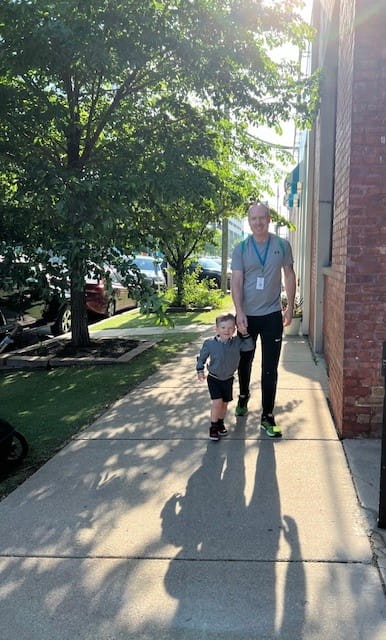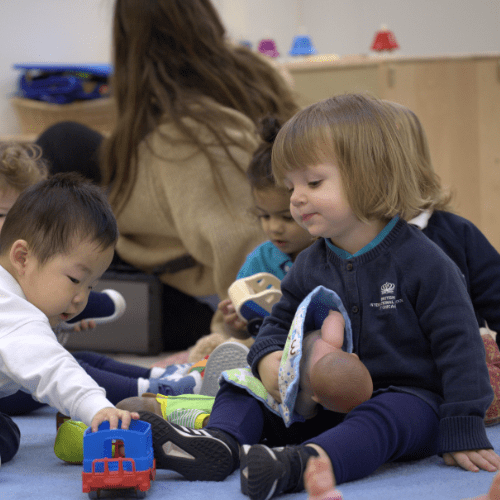We use cookies to improve your online experiences. To learn more and choose your cookies options, please refer to our cookie policy.

How do you know when your child is ‘ready’ for school?
School ‘readiness’
As the Directors of Pre-Nursery, we often get lots of questions from parents about transitioning to the ‘big school’, what this looks like and what are the expectations. Transition can be an anxious time for children (and families) so it is important that everyone involved has the best possible start to prepare for this process. The UNICEF definition of school readiness emphasizes that school readiness is not solely dependent on the child being ready. Instead, it is a holistic concept that involves three key aspects: Ready children, ready schools, and ready families. We will go through each of the key aspects in more detail to provide relevant and up to date information to make the transition as seamless as possible.

Ready Children
All children grow and develop on their own paths and each path will look different. At BISC-LP Pre-Nursery, we focus on the three prime areas of learning: Personal, Social and Emotional Development, Communication and Language and Physical Development.
For any child to succeed, they must first feel happy and safe. Separating from parents/guardians can cause anxiety for many children and may take longer in a new environment. Through their personal, social and emotional development, children should be encouraged to talk through their feelings and emotions prior to the transition to ease any unsettling feelings. One of the main areas that will aid children in being ‘ready’ for school is their ability to communicate. Communicating their wants and needs, including their need to go potty will support this big transition. Receptive language and communication skills like listening help children to develop their cognitive abilities, follow instructions, solve problems, and participate in social situations. Children who are healthy, well-rested and well-nourished - and follow health and safety practices such as handwashing - miss school less and are more engaged in school activities.

Ready Schools
In our BISC-LP Pre-Nursery program, we are supporting children with their transition to Nursery by fostering foundational skills that will support them on their academic journey. Some of the ways we are helping our youngest learners prepare for that are by navigating their emotions, developing their receptive and expressive language, and building social skills with peers.
When it comes to the emotional regulation of a young child, it might feel like you are trying to predict the weather at times! Our goal is to help our children understand and handle their feelings, not hide them. Through our Zones of Regulation, we help our children navigate their feelings and help support them with ways to manage them or feel better. We help our children to name their feelings, while also taking the time to listen and accept those feelings.
Children who are surrounded by language are more likely to develop strong receptive and expressive language skills. To help our children with their receptive languages we use visual aids in the classrooms to help with spoken language, engage the children in conversations, and use simple listening games throughout the week. To build their expressive language we give the children ample opportunities to engage in child-led play, asking children to participate in circle time discussions, and asking open-ended questions to promote multiword answers.
Ready Families
At home, there are a variety of ways that families can foster independence through daily activities. Mealtimes are a prime example, as you can encourage your child to help set the dinner table, feed themselves independently and even help cleaning up. Eating together as a family is a great opportunity to develop communication skills whilst modelling these skills. Setting up familiar and consistent routines at home will also aid your child in becoming ready when following a more structured timetable at school. Part of this routine can involve encouraging your child to help when dressing themselves, putting their own socks/shoes on and putting their arms into their coats. These skills can be tricky to master but the more practice they get, the more confident they will be over time.
It is important to remember that, as much as 3-year-olds talk, they may not be able to fully explain their feelings or worries verbally. You may notice changes in behavior, a common reaction as children takes a big move forward is to move backward in another area. It is natural to become frustrated and even concerned by this regression, however, we must remember that the child is facing a big change in their life and will need support, nurturing and lots of patience.
Amy Parker, Pre-Nursery Education Director & Courtney Slauter, Pre-Nursery Business